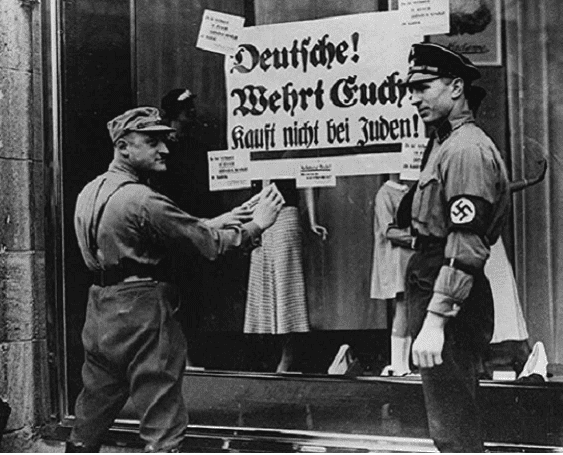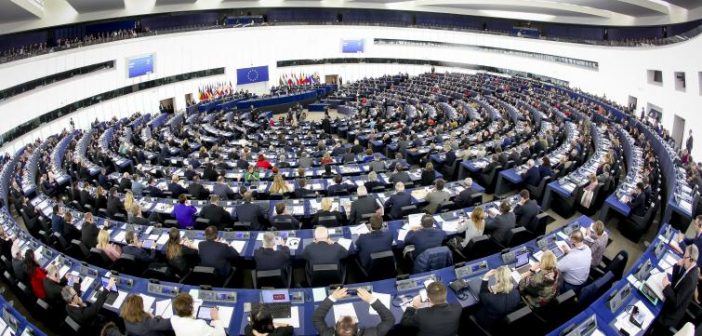Last week Chelsea Football Club was presented with the prestigious King David Award from the European Jewish Association (EJA). Chelsea Chairman Bruce Buck hosted a delegation from the EJA for the Juventus match, during which the award was presented.
It was given in recognition of the club’s Say No To Antisemitism campaign, launched in 2018 under the direction of our owner Roman Abramovich. The campaign was developed to raise awareness of and educate players, staff, fans and the wider global community about antisemitism and to do all we can to combat it.
‘On behalf of all of our members and communities, we applaud and thank everyone at Chelsea Football Club,’ said EJA Chairman Rabbi Menachem Margolin.
‘It is truly inspiring to see not only the significant investment made in this effort, but the genuine commitment to listen, to act and to make a difference. From the ground up, from grassroots initiatives to a website visited by millions, Chelsea Football Club has led the way, a shining light and example not just for other football clubs to follow, but for everyone.’
Rabbi Binyomin Jacobs, Chief Rabbi in the Netherlands and Chairman of the EJA committee on combatting antisemitism, underlined that ‘the Chelsea model is one to be replicated everywhere, and we will let governments and organisations know about the great and important work you are doing here. King David is a Jewish hero. Chelsea are now heroes to the Jewish community.’
‘We are honoured to be the latest recipients of the European Jewish Association’s King David Award,’ said Bruce Buck, who received the award on behalf of the club.
‘It is truly inspiring to see not only the significant investment made in this effort, but the genuine commitment to listen, to act and to make a difference. From the ground up, from grassroots initiatives to a website visited by millions, Chelsea Football Club has led the way, a shining light and example not just for other football clubs to follow, but for everyone.’
Rabbi Binyomin Jacobs, Chief Rabbi in the Netherlands and Chairman of the EJA committee on combatting antisemitism, underlined that ‘the Chelsea model is one to be replicated everywhere, and we will let governments and organisations know about the great and important work you are doing here. King David is a Jewish hero. Chelsea are now heroes to the Jewish community.’
‘We are honoured to be the latest recipients of the European Jewish Association’s King David Award,’ said Bruce Buck, who received the award on behalf of the club.
‘Since our club owner Roman Abramovich initiated our “Say No To Antisemitism” campaign in January 2018, we have been committed to working with Jewish organisations nationally and internationally to help stamp out antisemitism from our societies.
‘We will continue to use our global platforms at Chelsea to say no to antisemitism and keep up the fight against this and all other forms of discrimination.’
To learn more about Say No To Antisemitism, visit the website here
‘We will continue to use our global platforms at Chelsea to say no to antisemitism and keep up the fight against this and all other forms of discrimination.’
To learn more about Say No To Antisemitism, visit the website here
https://www.chelseafc.com/en/news/2021/11/29/chelsea-awarded-prestigious-king-david-award-by-the-european-jew













